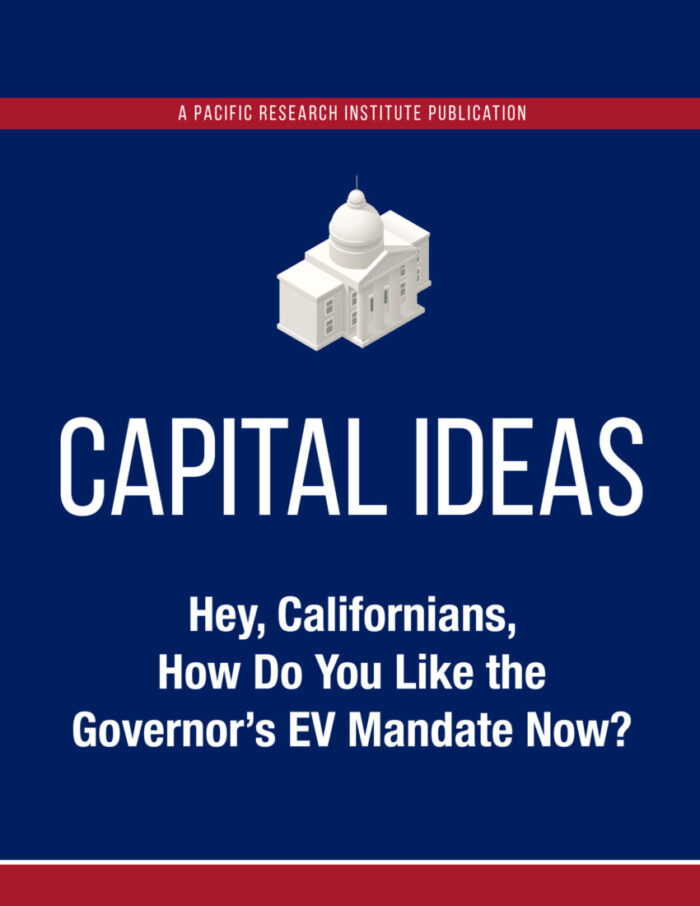A poll taken in the fall of 2022 found that 55% of registered California voters favored the state’s zero-emission vehicle mandate, which outlaws the sale of new fossil fuel-burning cars and light trucks beginning in 2035. Only 39% opposed it. While electric vehicles are being shunned in other states, EV sales in California set a record in 2023, with nearly 447,000 sold, an increase of 29% over 2022.
It’s clear that most Californians approve of Sacramento’s agenda to force a transition to ZEVs. Or at least have in the past. Many might not be so eager now, as increasing electricity rates have caused charging costs to go through the sunroof.
“After a 20% rate hike this year by Pacific Gas and Electric Co., charging a car – one of the
single biggest items on electric bills – just got more expensive,” the San Francisco Chronicle recently reported.
One Tesla Model Y owner interviewed by the Chronicle said, “he’s paying about $20 per charge at a Supercharger this year,” a significant jump over the $10 to $14 he had become accustomed to. Another simply said, “it’s crazy.”
“And the trend is unlikely to let up anytime soon: State regulators are considering further rate increases for PG&E this year.”
Rates have also increased for Southern California Edison and Los Angeles Department of Water and Power customers. San Diego Gas & Electric ratepayers are facing larger bills, as well, on average a little more than $8 higher per month.
The rate surge is happening in a state where consumers use less electricity per capita than any other state yet their power bills are already more than 50% higher than the national average.
Power bills big enough for many families to worry about are not the only concern going forward in the EV ramp-up. Adding more than 13 million voltage guzzlers to California’s roads by 2035 – by executive decree – is a formula for shortages. By 2045, when the grid is supposed to be wired entirely to renewable energy, there is expected to be a 21.1% shortage in power generation, caused in large part by the drain from vehicle charging.
Despite rising costs, an “electrification policy analyst” told the Chronicle that EVs are still the better option. It’s cheaper, he said, to pump electrons into a car than to fill ‘er up with hydrocarbons. He calculates that “it costs about $73 to fill the tank of a Toyota Camry and travel about 506 miles” while “traveling the same distance in a Tesla Model 3 costs about $32 for charging, while the Chevrolet Bolt would cost $43.”
Maybe so. But the cost gap is closing, and when considering other drawbacks unique to EVs, even a wide gulf might not be enough to favor battery cars.
Take convenience, for instance. The “electrification policy analyst” assumes that the 506-mile trip would require only a single charge. But the “experts” strongly suggest that EV owners charge their cars to only 80% of capacity, to help “mitigate stress on the battery to reduce wear and tear and promote longer battery life.” That means the practical range is only a little more than 405 miles (and maybe not even that – “real-world highway test data to show that electric vehicles underperform on real-world efficiency” by as much as 12.5%).
Stopping at 80% also shortens the charging rate, which slows “significantly beyond this point,” and takes us to another point regarding convenience: the patience-testing wait while the battery recharges. Depending on the make, model and range, a Level 2 EV charge, the fastest, can take from four hours for a Mini Electric Hardtop to 15 hours for a Ford Mustang Mach-E.
Meanwhile, it takes only an average of two minutes to fill a gas tank.
The warming warriors are naturally flustered about the increasing costs for charging EVs. Mark Toney, executive director of the Utility Reform Network, told the Chronicle that “we need to understand the consequences of these rate increases on climate change.” This seems, well, tone deaf since the hikes will fall disproportionately on those least able to afford them.
It’s not as detestable, though, as a recent remark from former Biden climate czar John Kerry, who said we’d all feel better about Russia’s war on Ukraine if Moscow made “a greater effort to reduce emissions.” But it’s in the same neighborhood.
Kerry Jackson is the William Clement Fellow in California Reform at the Pacific Research Institute.


